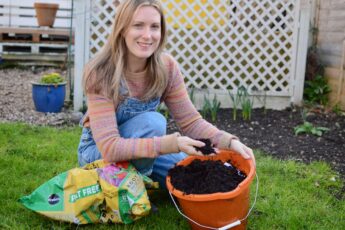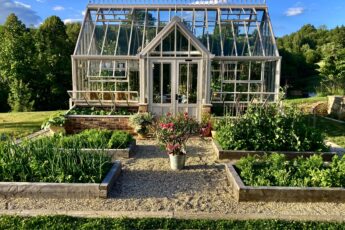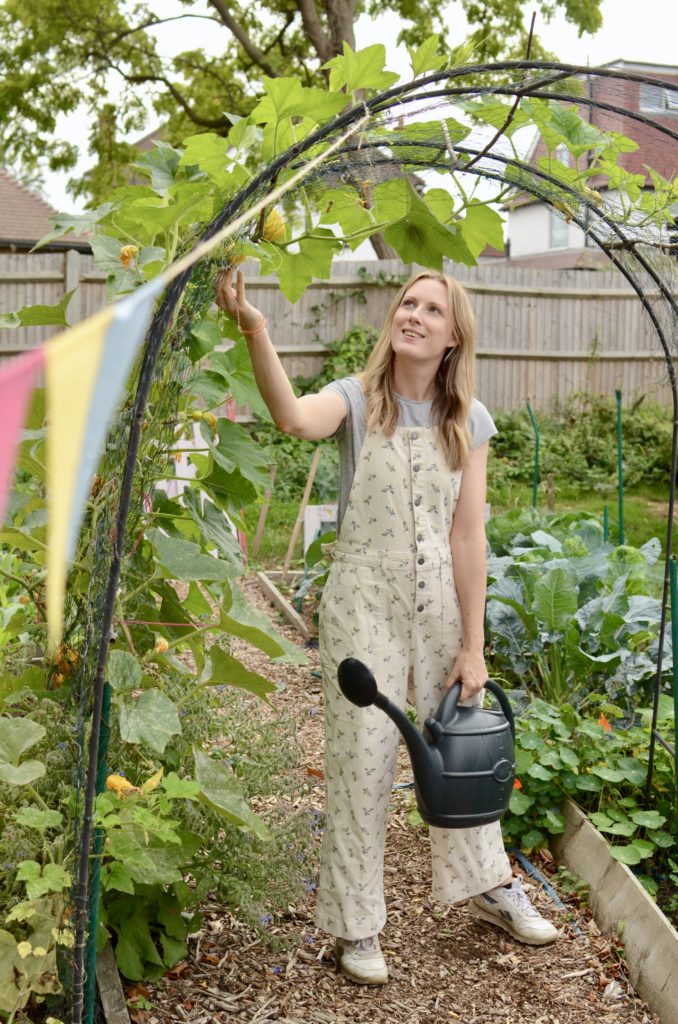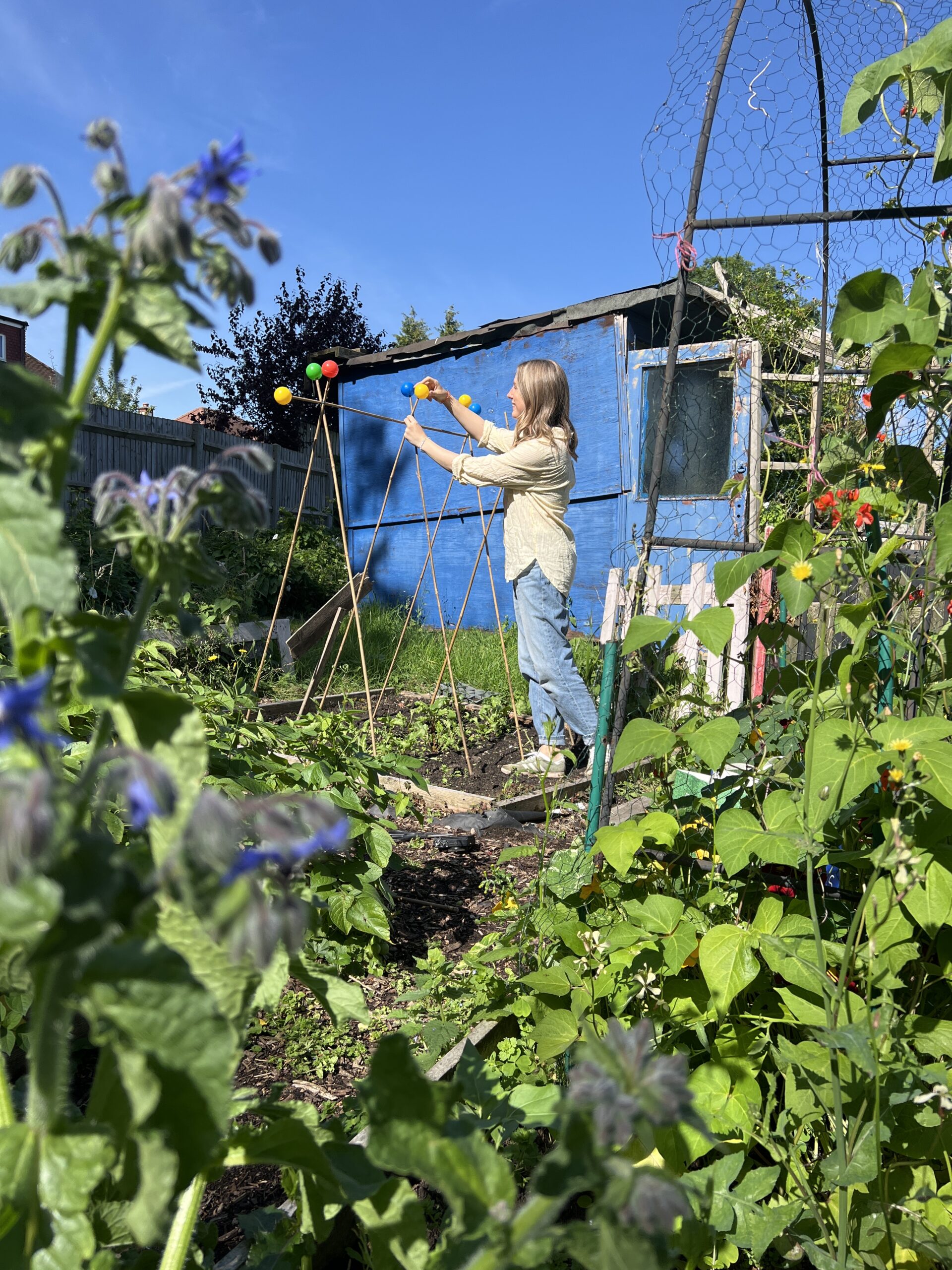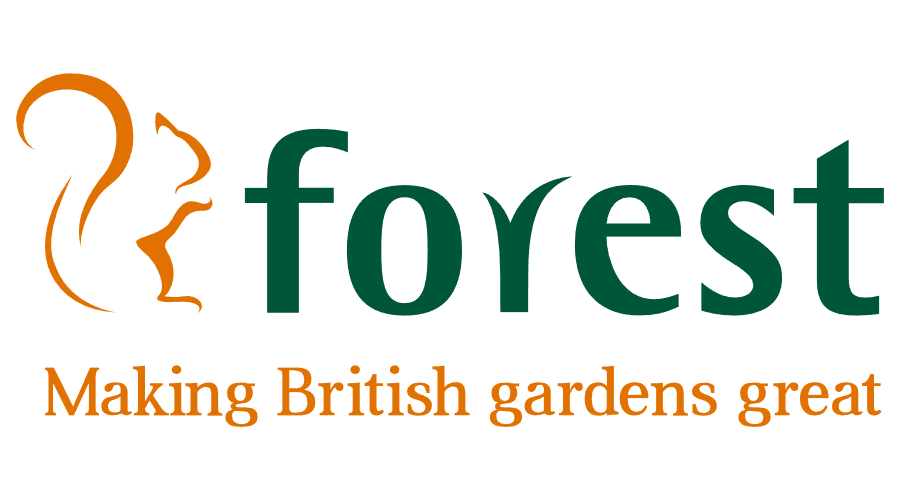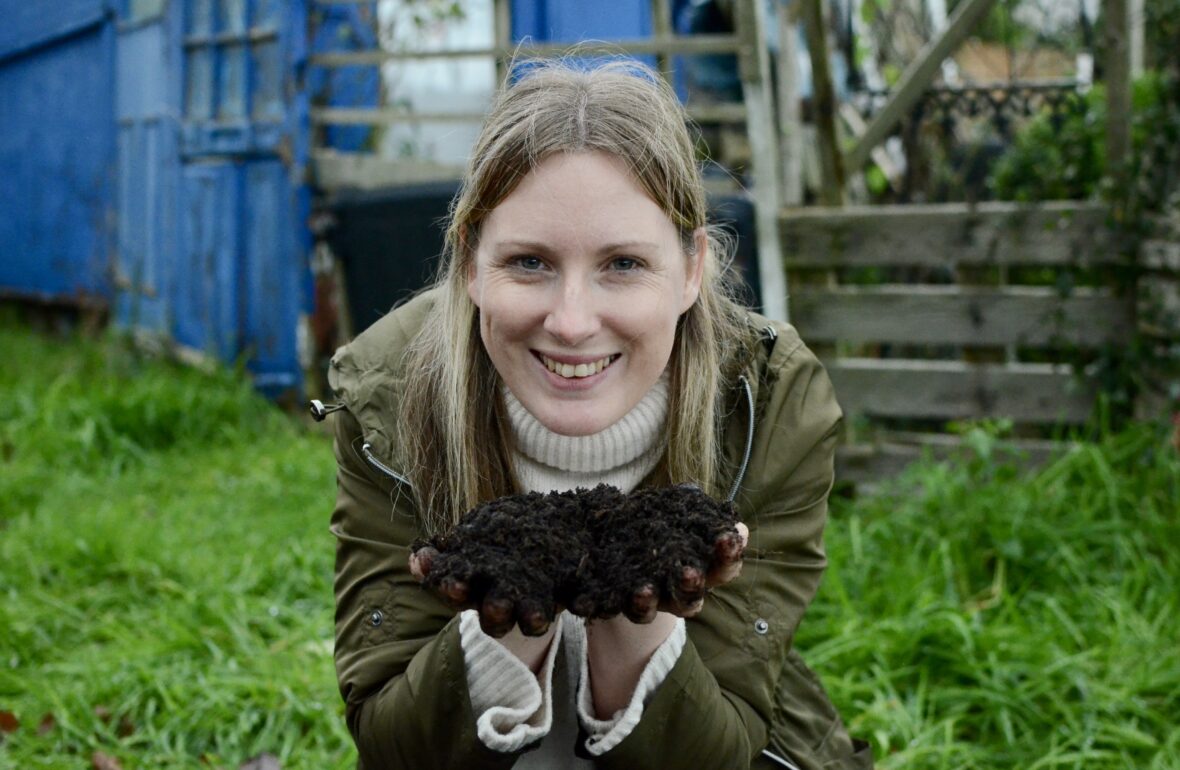
When it comes to garden jobs, mulching is one of my all time favourites. There are not many jobs in gardening that give you an instantaneous result, but mulching is one of them. But what does mulch do for your garden? What do we even mean when we say it’s time to add some mulch to your flower or vegetable beds?
Mulching is something I used to do almost automatically without thinking. I didn’t give it two thoughts, I simply followed all the guide books on how to garden and would find myself throwing mulch down during the Autumn and/or spring time. After a little research, I’ve discovered three main reasons for this satisfying job that proves it’s not only an easy thing to tick of your gardening list, but also a vital step in creating a healthy garden.
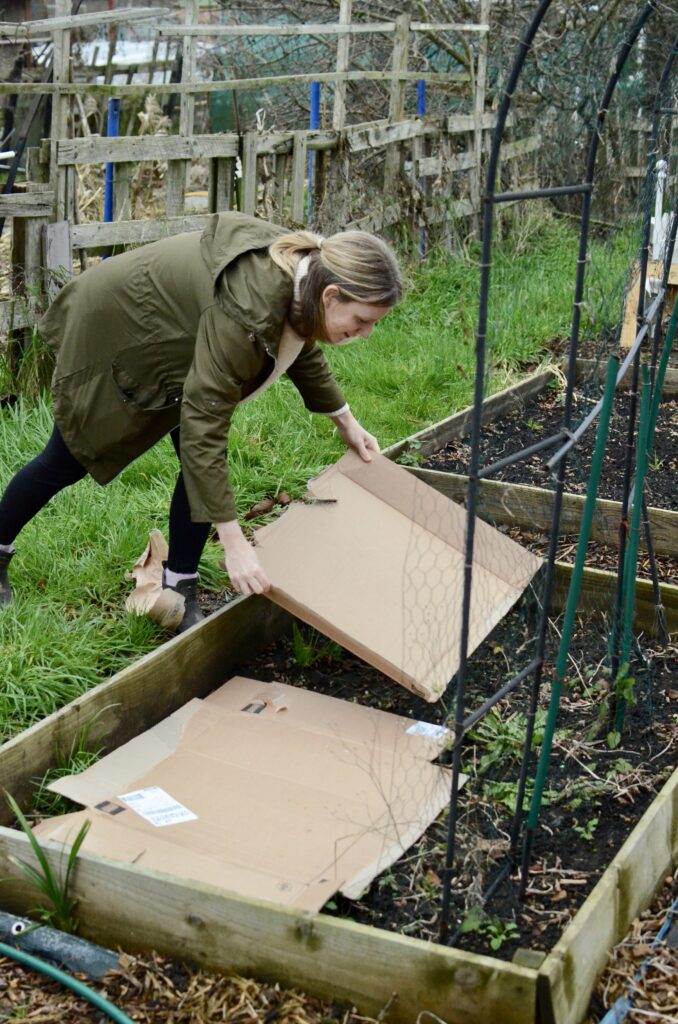
WHAT IS MULCH?
Mulch is a word that’s thrown around a lot, but what is it exactly? Well simply put, mulch is a material you put onto your garden growing beds to improve the health of the soil and plants that are in it.
Mulch doesn’t have to be made of organic material. It could be a weed membrane or even some groundsheet. However, using an organic material will add even more goodness to your soil and so is definitely recommended.
Mulch can be made from: woodchip, compost, manure, shredded paper, cardboard, crushed shells and even straw.
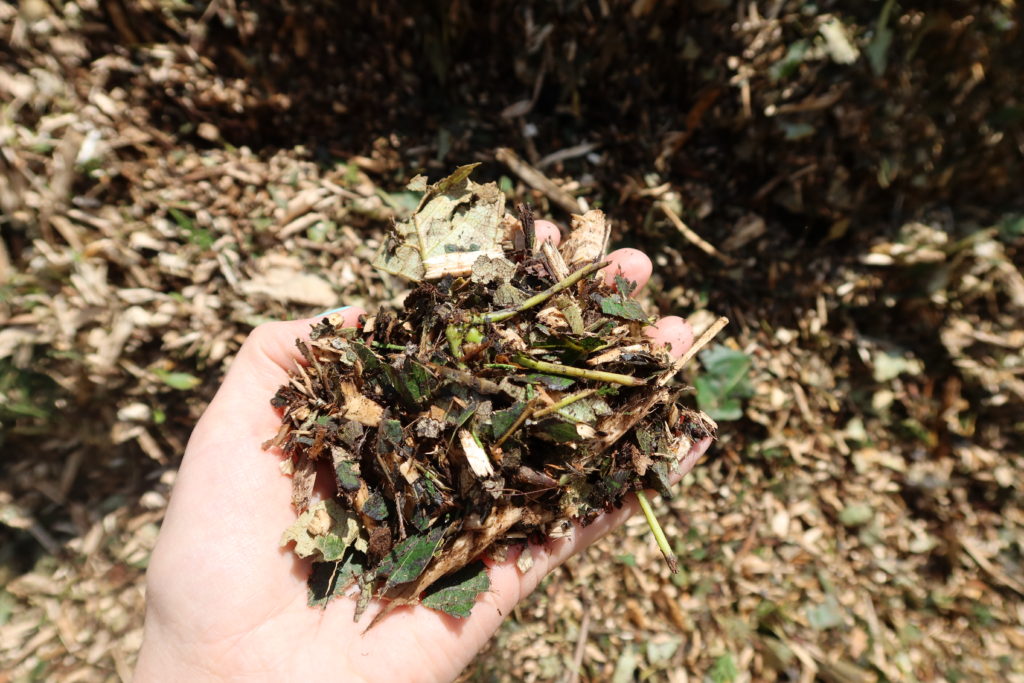
HOW DO YOU MULCH YOUR GARDEN BEDS?
Mulching your garden beds is super easy. Simply take some of your organic material and spread it out across the beds you intend to grow in. If there are already plants growing in there, just rake it around them being careful not to damage them in the process.
There is no need to dig mulch into your soil. Mulch is intended to sit on the top of your beds.
Digging can destroy the biodiversity within the soil and disrupt the careful balance of nutrients and minerals. Not only that, but digging in your beds too much can spread around weed seeds making it likely that you’ll be spending more time weeding over the spring and summer than actually growing anything! The no dig garden approach is an excellent method to take up in your own garden to improve the quality of the soil and overall health of the plants.

WHAT DOES MULCH DO FOR YOUR GARDEN?
Well it does three main things.
- It improves the quality of the soil.
By not digging and instead layering on a fresh pile of organic material, you are instantly improving the quality of the soil. The worms and the rain will bring the new nutrients further down into your bed and replenish the existing soil with fresh goodness.
2. It improves water retention.
Oh yes, adding a fresh layer of mulch to your garden beds is almost like laying down a blanket. It helps to improve the water retention within the soil by trapping it beneath the surface and preventing premature evaporation.
3. It stops weeds.
There will always be weeds in a garden, this is just a fact. However, mulching will greatly reduce the number of weeds by smothering them before the seedlings have a chance of reaching the light. Add on top of this a no-dig approach to gardening and you are looking at a serious weed reduction in your garden!
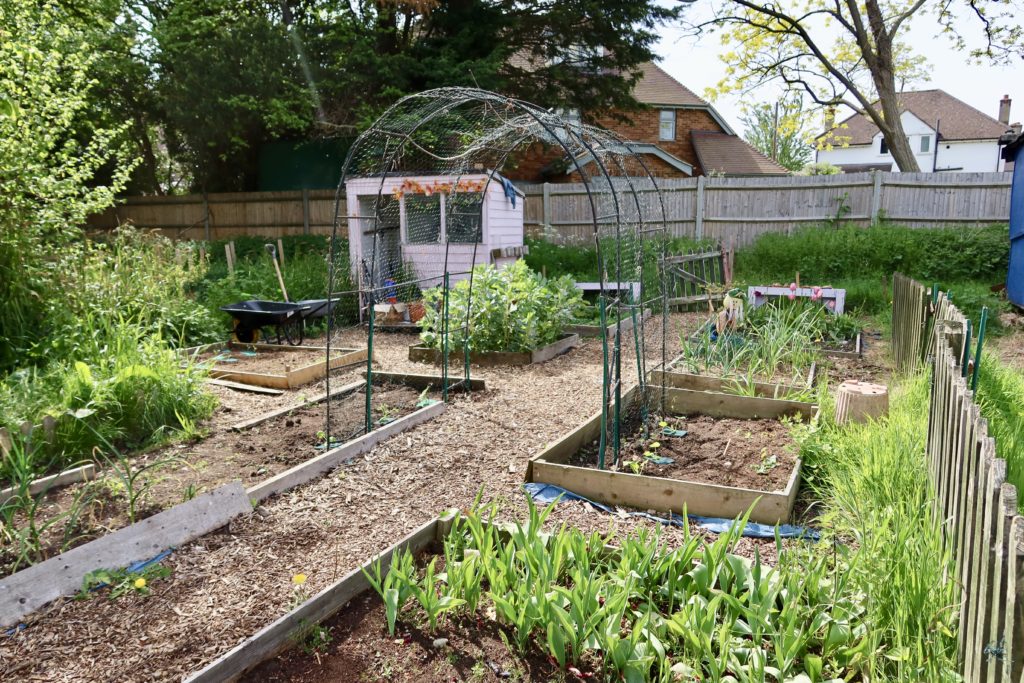
WHEN SHOULD I MULCH MY GARDEN?
The honest answer is, whenever you want! Adding a fresh layer of organic material will always be a good thing and should be done whenever you can.
Optimum time for mulching is in late Autumn when your crops have died back. Think of this as putting a blanket over your beds ready for the hibernation period of winter. Early spring is also a great time to add a fresh layer of mulch as it helps to warm up the soil ready for new seeds and plants! It also instantly refreshes your space, smothering all those early weeds.
I hope this helps to answer a few of your questions about mulching and what it means for your garden. As always, my simple advice will be to just whack stuff on whenever you can. Your garden will thank you!



